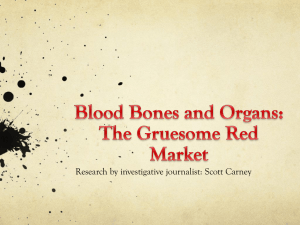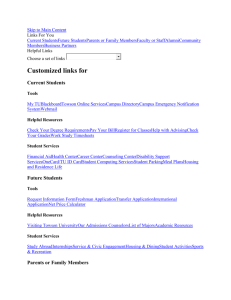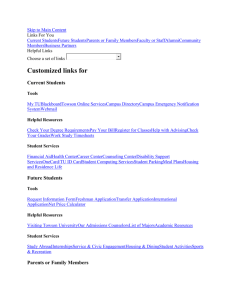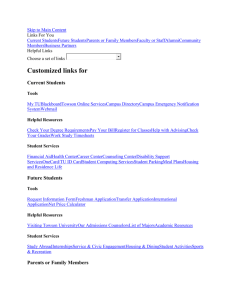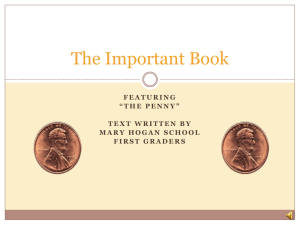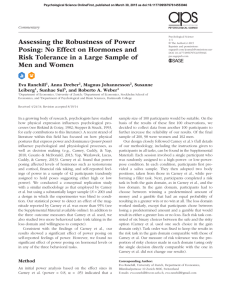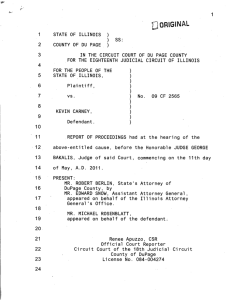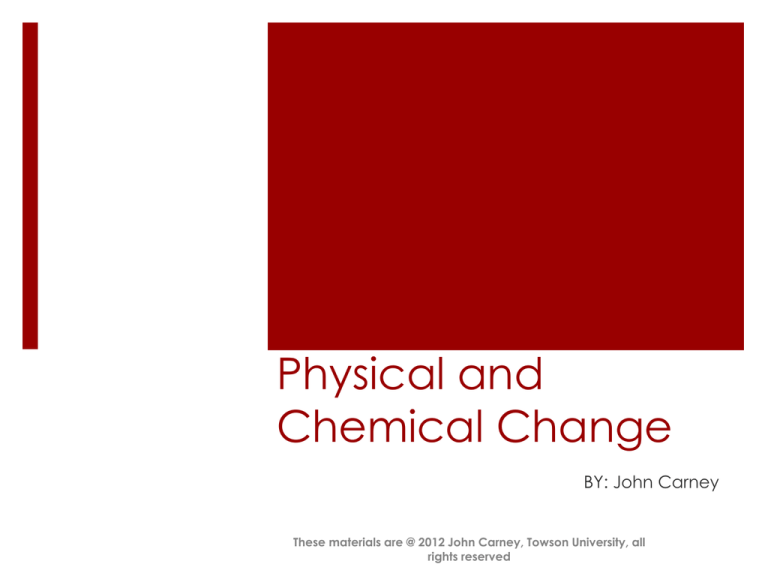
Physical and
Chemical Change
BY: John Carney
These materials are @ 2012 John Carney, Towson University, all
rights reserved
The Question
That greenish hue tarnish
(oxidation) on a penny, have you
ever wondered how does a shiny
new penny change into a
oxidized one?
These materials are @ 2012 John Carney, Towson
University, all rights reserved
A Penny for your thoughts….
Now lets look at a regular penny. We are all familiar with them, they are
coins that can be used in exchange for goods and services. Often
penny's are used to make change and are made of copper.
Back to the Green stuff: Oxidation is a chemical process that occurs
when oxygen encounters various materials. (copper penny)
The average life span of a penny is 25 years. Thats a lot of wear and Tear!
These materials are @ 2012 John Carney, Towson University, all rights reserved
Information..
Earlier this year we spoke about physical and chemical change
and how we can tell the difference between the two. For
example ice melting, when ice is in its solid state and changes to
liquid state it is still water. This is an example of a physical change.
An example of a chemical change would be wood burning and
turning into ash. Once the wood has been burned it cannot be
turned back in to wood so it is a chemical change.
Today everyone will have a chance to conduct their own
experiment where in they will determine if the change they
witness in the experiment is a physical or chemical change
On the next slide you will be given a set of instructions on how
to complete your very own experiment
These materials are @ 2012 John Carney, Towson University, all rights reserved
Student Activity
Break into lab
partners
Click on
materials and
directions
Click on Data
Sheet once you
have checked
your materials list
Using your prior knowledge I would
like for our class to examine old
tarnished pennies, and make
educated guesses on the changes
you witness
Materials And Directions
Data Sheet
These materials are @ 2012 John Carney, Towson University, all rights reserved
The Assessment Activity
After you completed your Venn diagram part of
the clean penny data sheet move on to the
written part of the sheet.
Your lab partner and you should discuss the
physical properties of the penny before and after
the change. Provide evidence that a chemical
change took place. **Hint check 4th slide for
clues.
These materials are @ 2012 John Carney, Towson University, all rights reserved
Enrichment Activity
Lets find
out
what happened
in our experiment?
These materials are @ 2012 John Carney, Towson University, all rights reserved
More Enrichment Activities
For more information on Chemical changes vs.
Physical changes check these sites
http://www.learner.org/courses/essential/physicalsc
i/session4/closer1.html
1.
http://www.chemteam.info/Matter/WSPhysical&Chem-Changes.html
2.
http://www.quia.com/quiz/303980.html
Choose one of the above links and answer the
questions. If you choose link 1 print the quiz and
answer questions. If you choose link 2 print at the
end of the quiz. Turn in all quizzes.
These materials are @ 2012 John Carney, Towson University, all rights reserved
Teacher Support Materials
State Standards
Maryland
Eight grade Chemistry
Standard 4.0 Chemistry
Topic D Indicator
Core Learning goals
Goal 4 Concepts of Chemistry 4.4 and 4.5
Maryland Teacher Technology Standards and
Performance Indicators
Standard V: Integrating Technology into the
Curriculum and Instruction
These materials are @ 2012 John Carney, Towson University, all rights reserved
Learning Objectives
Students will identify physical and chemical
properties. Students will be able to differentiate
between a physical change and a chemical
change after performing the experiment.
These materials are @ 2012 John Carney, Towson University, all rights reserved
Materials
Laptop
Penny Data Sheet
Internet access
List of ingredients in each
condiment
¼ cup of Ketchup in a small
bowl
¼ cup of tomato paste in a
small bowl
¼ cup of Soy sauce
3 petri dishes (Labeled
ketchup, Soy sauce, and
Tomato paste)
Pencil or pen
3 oxidized (dirty pennies)
3 sheets of paper towels
Tape (to label petri dishes)
1 plastic spoon
These materials are @ 2012 John Carney, Towson University, all rights reserved
References
http://www.youtube.com/watch?v=9hB06gspEXE
http://www.learner.org/courses/essential/physicalsci/session4/
closer1.html
http://www.quia.com/quiz/303980.html
http://www.chemteam.info/Matter/WS-Physical&ChemChanges.html
http://mdk12.org/instruction/curriculum/science/standard4/gr
ade8.html
These materials are @ 2012 John Carney, Towson University, all rights reserved

